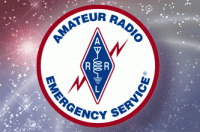|
Welcome,
Guest
|
TOPIC:
Observations on Hurricane Harvey Response 6 years 6 months ago #782
|
Observations on Hurricane Harvey Response
The public safety agencies along the Gulf coast have done a lot over the past ten years to make their communications systems - including radio and Internet -- more robust and hardened for integrity in major storm events. Their efforts, combined with the FCC requirement for narrow banding and the addition of digital modes at the same time have made these systems more complex - yielding more possible points of failure. But in the end, in both the greater Houston and Golden Triangle portions of the Texas Gulf Coast, Hurricane Harvey did not knock out, nor significantly impact the cellular telephone and data networks or the 700 MHz and 800 MHz trunked public safety communication service systems. There were some threats but no significant impact. ARES/RACES operators were prepared, in place, staffed and ready to go, if needed. My concern is that not only will our served agencies find themselves lured into a false sense of security, but so will the Amateur Radio community. We amateur operators have the ability to, and must control one side of that equation: We can continue to train, practice and exercise. We can complete the courses Introduction to Emergency Communication (EC-001); Public Service and Emergency Communications Management for Radio Amateurs (EC-016); PR-101: ARRL Public Relations (EC-015). We can take and complete the FEMA Independent Study (IS) courses IS-100, IS-200, IS-700, IS-800 and IS-026. Both ARES and RACES leaders should add IS-300 and IS-400 courses to their resume. All should get into a DHS AUXCOMM class. Leaders should try to take the DHS COML course even if they never get DHS certified. As PIO's who also wear an ARES/RACES hat, in addition to the PR-101 course offered by the ARRL, they should take the FEMA IS-042 and the GS-289, GS-290, and GS-291 courses. In addition to the educational portion described above, we also need to continue to practice our on air skills. Personally, I find that most nets are not fulfilling their potential in the practicing of emergency/disaster response communications skills. To help nets meet their potential, one action they could take is to hold at least one monthly session where all operators take their go kits to the field -- even if it's just the Wal-Mart parking lot down the street -- and check into the net. Not every ham can "go portable," but the more who can, increase the utility of our organizations. That utility is important when it comes to emergencies and disasters such as what we have just gone through here in the Houston area where maybe as many as 1 out of 6 homes were rendered uninhabitable. Also, net check-ins, whether novices or veterans, sometimes do not listen to the instructions of the net control station. We were given two ears and one mouth to be exercised proportionally. During the Harvey disaster, I observed that net operators and net control stations could use more net discipline for great efficiency and efficacy. The lowest common denominators for ARES/RACES emergency/disaster response are still the workhorse V/UHF FM and 40/75 meter phone bands. While the digital modes can certainly bring value, they cannot replace our lowest common denominators as not every ham is so equipped. As our served agencies' communications systems have become more complex with more possible points of failure, we do not need to repeat that model less we set up to fail as well. Outside of the major metropolitan areas many of these more elaborate digital modes do not see the light of day. Every ARES/RACES/CERT responder needs to have a "brag book." This phrase was coined by a friend and new ham who says every amateur licensee should have a book with copies of any license, I-D, certificates, etc., in it to present to a served agency official or other person who may have a need to review their credentials. Now we've done our part -- how do we get our served agencies on board? We can't force them to do anything and the more we try to force ourselves upon them the more likely the chance to alienate them. It is my opinion that nothing does more to gain their respect than documented training from recognizable organizations. Understanding your served agencies' communications systems, whether a simple 5 channel narrow band FM radio or complex multi-site 700 MHz P25 protocol system, and being able to discuss where Amateur Radio can fit into their system to either back up or take load off their system helps. Opening up your brag book and explaining that you understand ICS protocol, and our place in the system and are continuing to learn more, all help. Volunteer to participate in any of their drills, and not just as a radio operator. My city runs several a year as we are in a large petrochemical complex and I've served everywhere from in the EOC to an observer/evaluator in the field. The bottom line is that every region of the country will be different and there is no one simple answer. We all need to find what works best for our particular environments. - Mike Urich, KA5CVH, Assistant SEC and PIO, ARRL South Texas Section, Harris County ARES, Interview: ARRL Public Information Officer Mike Urich, KA5CVH, Describes the Situation in Harris County, Texas, during storm Harvey (8/29/17) SOURCE: ARES E-Letter (Sept. 2017) www.arrl.org/FandES/field/ares-el/?issue=2017-09-20 |
|
Please Log in or Create an account to join the conversation. |
Time to create page: 0.150 seconds
